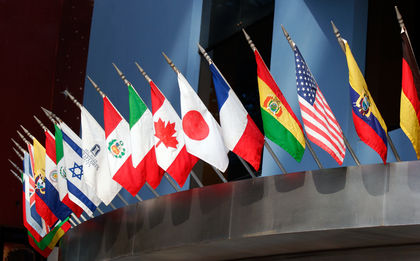Former President Olusegun Obasanjo holds State of the Nation briefing
A former President of Nigeria, Olusegun Obasanjo is presently holding a State of the Nation briefing. The event is taking place at his Pent House Residence, inside Olusegun Obasanjo Presidential Library, Oke-Mosan, OOPL, Abeokuta, Ogun State. Former President, Chief Olusegun Obasanjo on Sunday said President Muhammadu Buhari has succeeded in deceiving Nigerians for the first time and they would be fools to play into his hand for the second time. He likened Buhari’s government to “Abacha era”, saying the security institutions are being misused to fight all critics and opponents of Buhari. “Buhari has succeeded in deceiving us first time and we will be fools to allow ourselves to be deceived the second time,” Obasanjo said in the state of the nation address titled “Points of Concern and Action.” Obasanjo spoke at his Pent House Residence Inside Olusegun Obasanjo Presidential Library, Oke-Mosan, OOPL, Abeokuta, Ogun State. The lastest addres...

